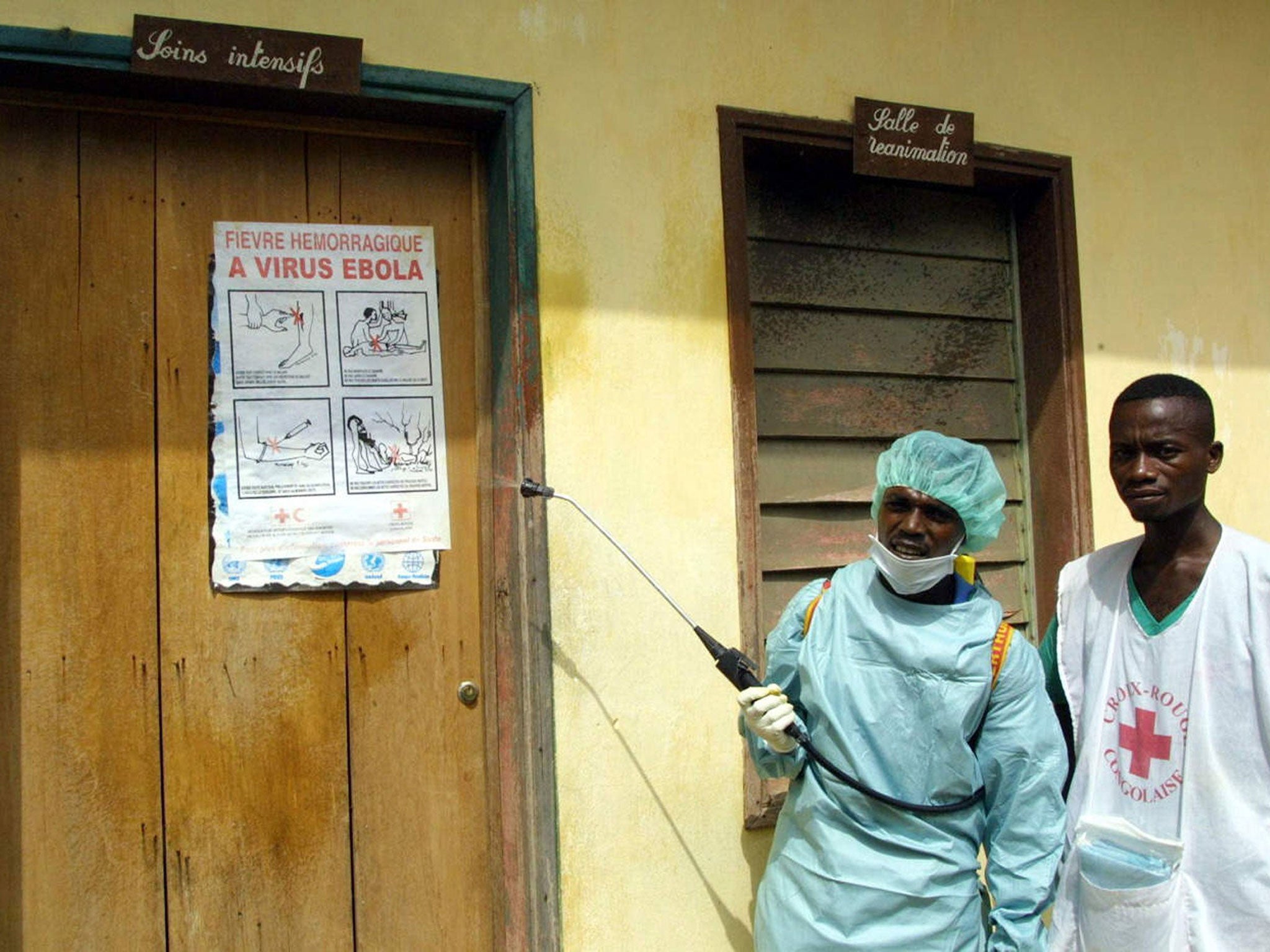West Africa on high alert after deadly Ebola outbreak kills 83 so far

Your support helps us to tell the story
From reproductive rights to climate change to Big Tech, The Independent is on the ground when the story is developing. Whether it's investigating the financials of Elon Musk's pro-Trump PAC or producing our latest documentary, 'The A Word', which shines a light on the American women fighting for reproductive rights, we know how important it is to parse out the facts from the messaging.
At such a critical moment in US history, we need reporters on the ground. Your donation allows us to keep sending journalists to speak to both sides of the story.
The Independent is trusted by Americans across the entire political spectrum. And unlike many other quality news outlets, we choose not to lock Americans out of our reporting and analysis with paywalls. We believe quality journalism should be available to everyone, paid for by those who can afford it.
Your support makes all the difference.The deadliest strain of Ebola virus is spreading through West Africa. Confirmed cases in Guinea, where the outbreak began, now number 127, of whom 83 victims have died. Eight deaths have occurred in the capital, Conakry, with further cases in neighbouring Sierra Leone and Liberia.
The variant responsible is the Zaire strain; this is the most aggressive form of Ebola, and kills nine out of 10 people who contract it.
Médecins Sans Frontières describes the epidemic as “unprecedented”. The medical charity’s project coordinator, Mariano Lugli, said: “We are facing an epidemic of a magnitude never before seen in terms of the distribution of cases in the country."
But the World Health Organisation has been more cautious in its statements, describing the outbreak as “relatively small”. A spokesman for the WHO, Gregory Hartl, said: “Ebola already causes enough concern and we need to be very careful about how we characterise something which is up until now an outbreak with sporadic cases."
Ebola was first identified in 1976, in near-simultaneous outbreaks in Sudan and the Democratic Republic of Congo. The latter took place near the Ebola River, from which the name was taken.
The initial symptoms are fever, weakness, muscle pain, headache and a sore throat. These signs are swiftly followed by vomiting and diarrhoea, kidney and liver failure, and sometimes both internal and external bleeding.
The virus reaches the human population through contact with the blood, bodily fluids or organs of infected mammals, including fruit bats, chimpanzees, gorillas and monkeys. The WHO believes that primates do not constitute the reservoir of infection, but are “accidental hosts” – as are humans.
Ebola is transmitted between humans when the bodily fluids of infected people contaminate others, usually through broken skin or mucous membranes. Healthcare staff are particularly at risk. The illness has been known to spread after funerals in which mourners have had direct contact with the body of the victim.
Health Protection Scotland, which provides travel medicine advice on behalf of the NHS, said the risk of travellers becoming infected is “extremely low”, unless there has been direct contact with blood or bodily fluids of infected people or animals.
There is no vaccine against Ebola, though several are being tested. Treatment is limited to rehydration. The WHO says: “Samples from patients are an extreme biohazard risk; testing should be conducted under maximum biological containment conditions.”
The spread of the virus is contained by isolating the victims and those who have come into contact with them. This process is hampered by Ebola’s incubation period; it can take up to three weeks from infection to the onset of symptoms.
The worst outbreak was in the Democratic Republic of Congo in 1995, in which 254 people died from a total of 315 infected – a mortality rate of 81 per cent. An outbreak in Uganda in 2000 infected more people – 425 – but more than 200 survived.
As the death toll in the present outbreak increases, the Foreign Office has warned travellers to Guinea, Sierra Leone and Liberia to “maintain strict standards of hygiene and avoid eating bushmeat”.
Join our commenting forum
Join thought-provoking conversations, follow other Independent readers and see their replies
Comments